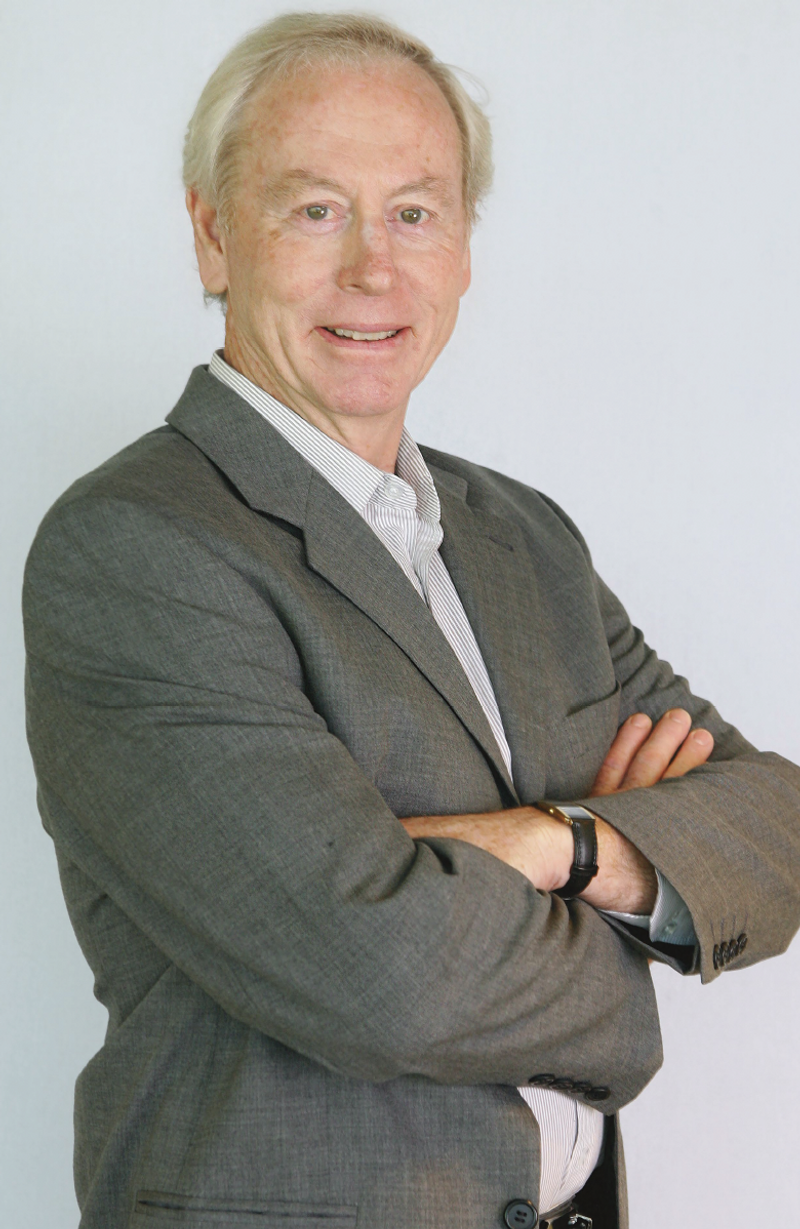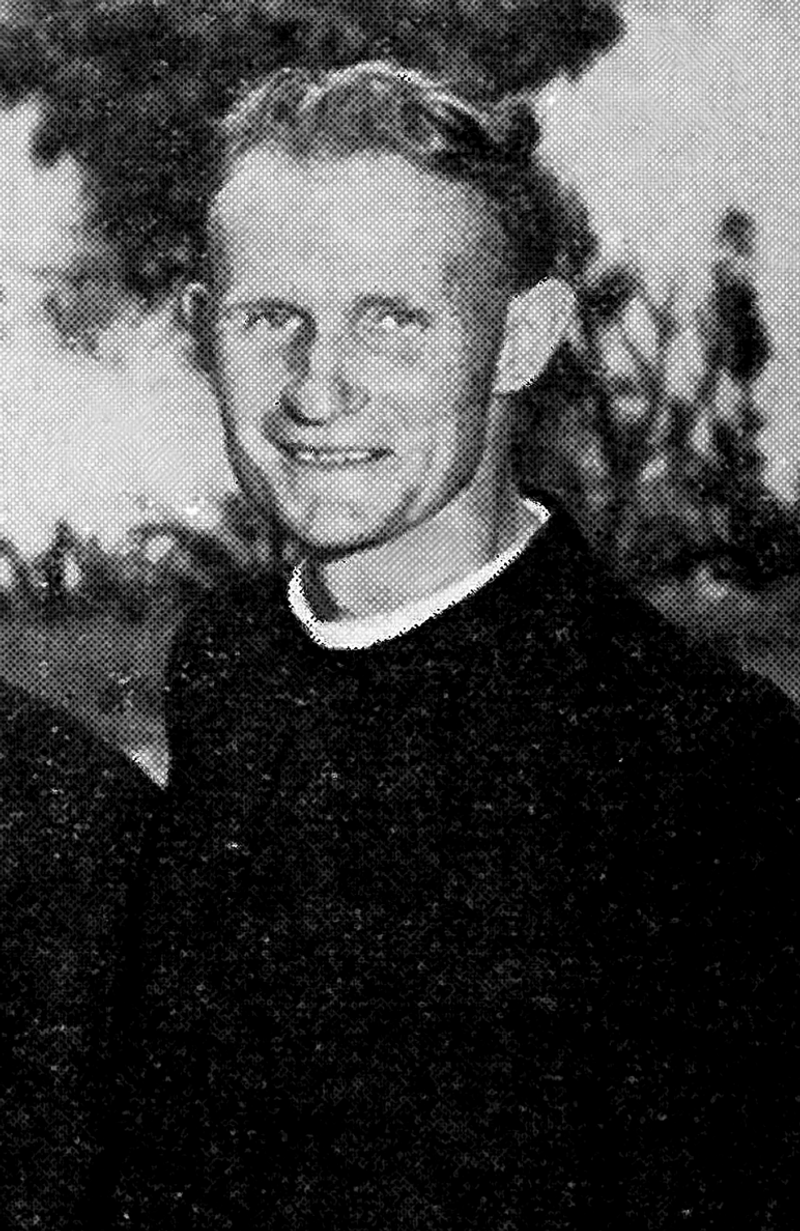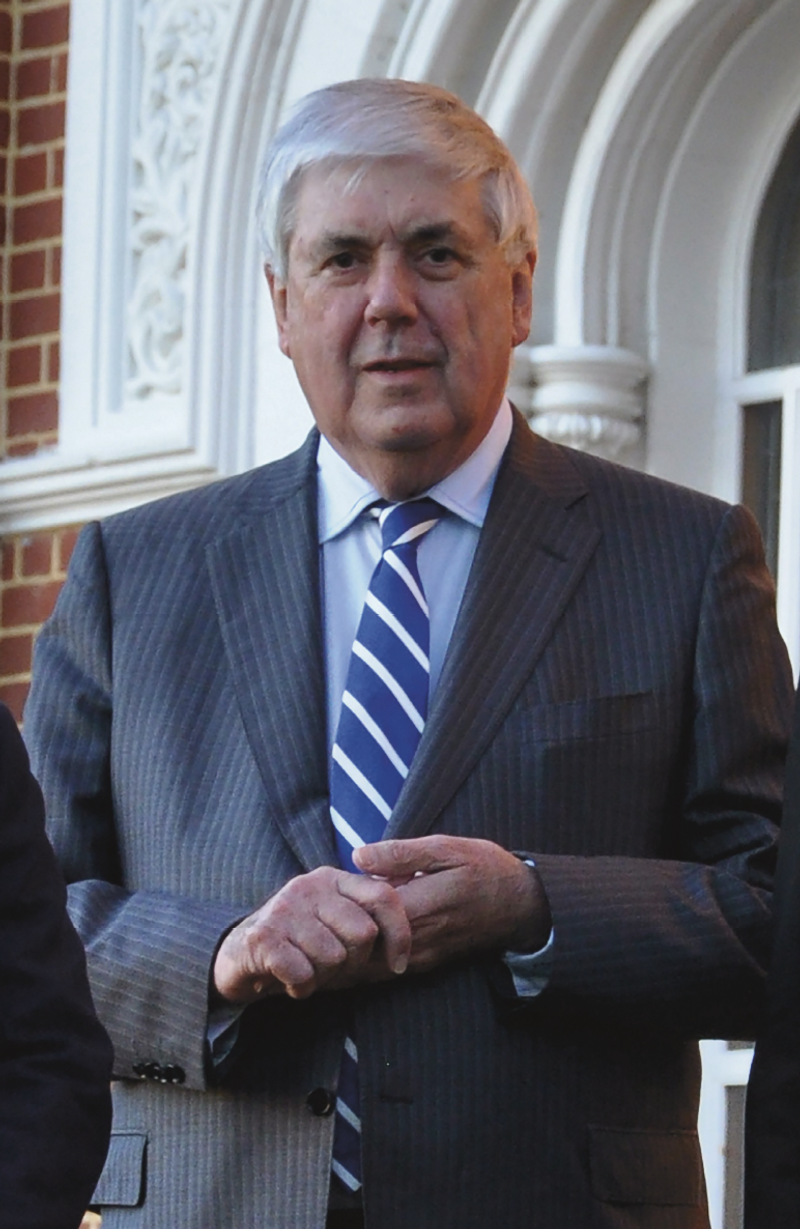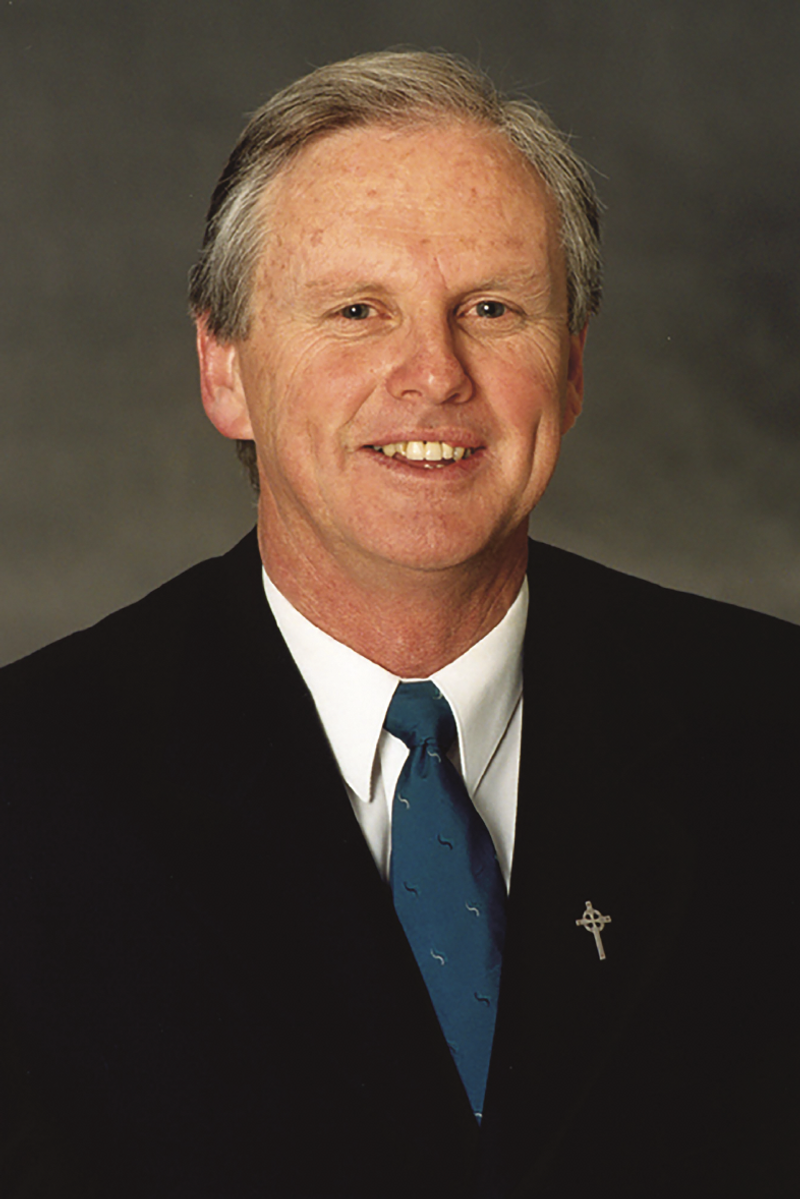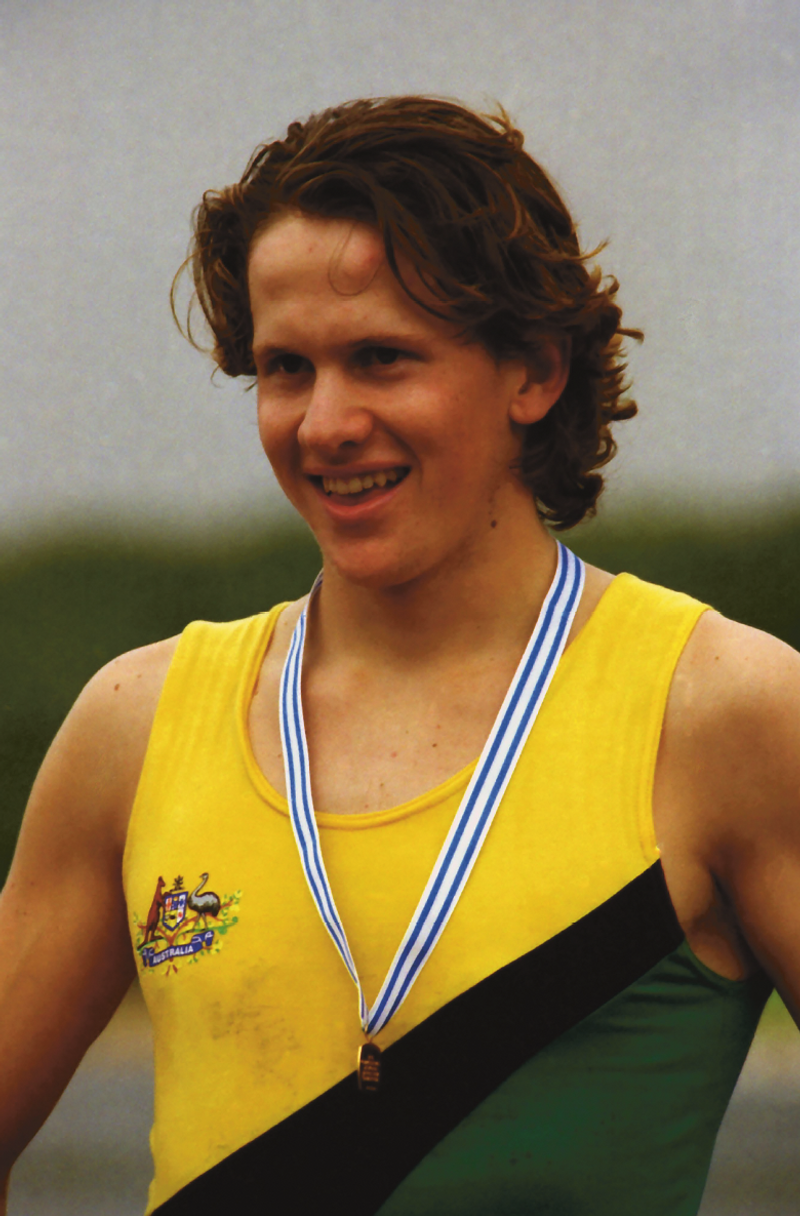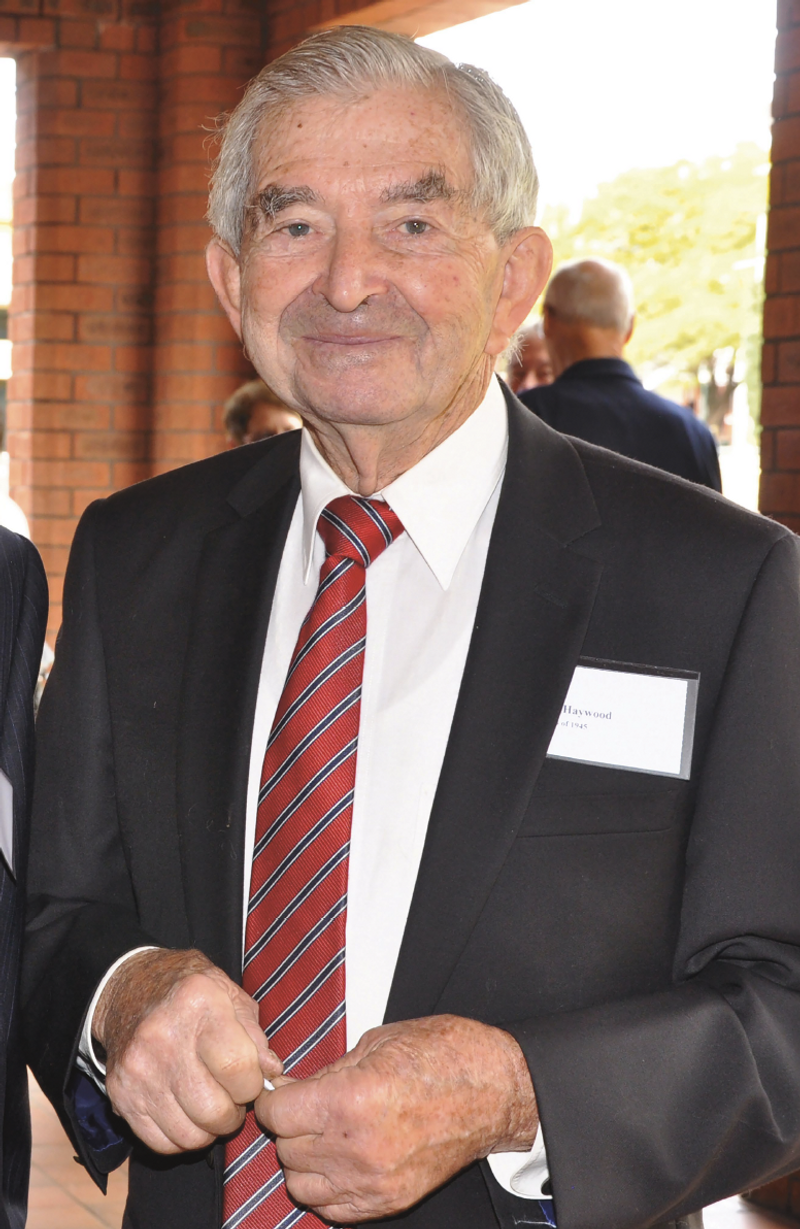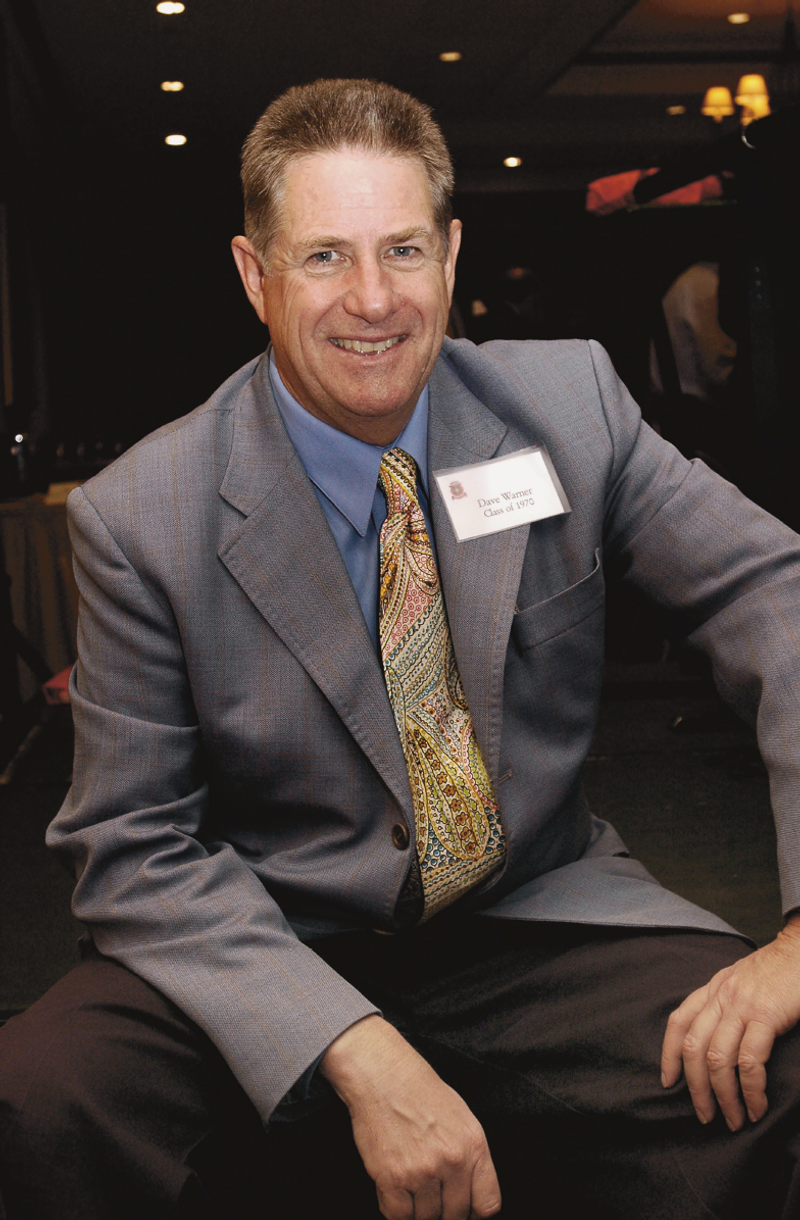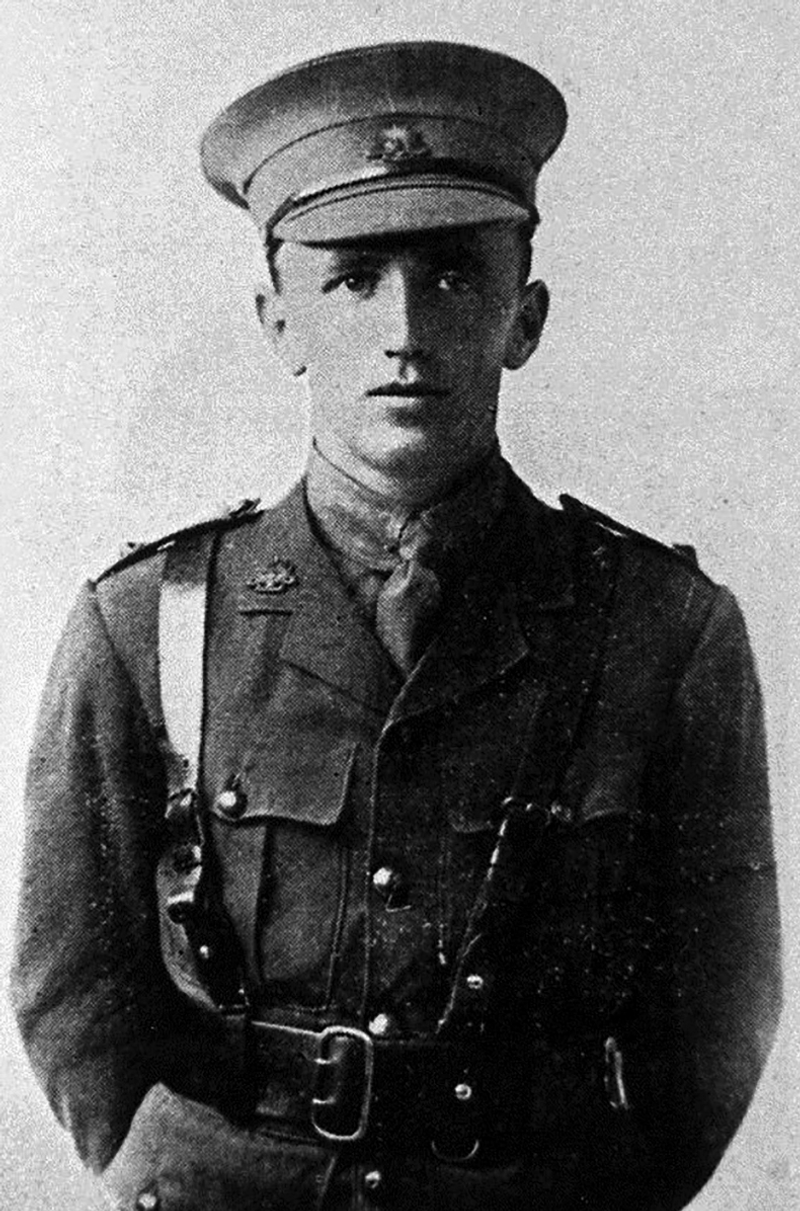Contact
Dr John Wood
Class of 1969
John Cunningham Wood is the son of hard-working parents who were forced to leave school to work. His father was from Galashiels just over the Scottish border and his mother was born in Greenbushes. John’s parents pursued a range of jobs and had bakeries in Denmark, Brookton and Carnamah, working extremely hard and long days. Life was not easy. John’s parents taught him about survival during those tough times even before Aquinas did. John saw their challenges at close hand and they spurred him on, through his years at Aquinas and beyond to ensure that he would never “be of that world”.
One of the things an Aquinas education taught young Wood was not only to survive but to thrive in adverse conditions. He learned to be “streetwise” in a way that helped him through some of the rough and tumble of boarding life. It worked. He was a Prefect in his final year and, although he failed Latin and French in Year 10, John graduated with a First Class Honours Degree in Economics at UWA before applying for a Rhodes Scholarship. He lost by a casting vote to a footballer but instead secured an Australian-wide Shell Scholarship to Oxford. Unusually he read Economics in two colleges at Oxford: Nuffield and Exeter and gained his D.Phil with an exceptionally high mark.
He sees his professional life as having four “ages”: scholar; economic adviser/speechwriter for Prime Minister Bob Hawke; civil servant/economist and finally global education provider. This speaks to the thing life in the bush and the school gave him above all else - adaptability. His achievements like his publications are many. John was appointed Hughes Business Professor at the University of Notre Dame, Deputy Vice Chancellor of Edith Cowan University and finally CEO of University Programs at Navitas the global education provider.
John remembers getting on well with the Brothers and that “some of the Brothers were unquestionably involved in the great commitment to education.” They laid the foundations of what was to be a stellar career and no doubt helped form him. Determination, discipline, hard work, resilience, focused completion of tasks. These are all attributes John feels he gained from his time at Aquinas College.
Br Neil Wilson
Class of 1946
Norman Charles Wilson was an Aquinian who loved life and lived it to the full. He was much loved for his passion for teaching by all who knew him. As well as being academically strong he was stroke in the 2nd VIII Rowing team at the age of only 15, in his leaving year 1946.
Early the next year he made the long trip to Strathfield across the Nullabor, by locomotive, to prepare for admission to the congregation. His religious name Br Neil was short for Cornelius and, having trained as a teacher at the age of 20 in Ballarat, he eventually moved back to Perth. He taught at CBC Fremantle in 1957-58 and studied a Bachelor of Arts part-time at UWA.
It was with mixed feelings that he returned to Aquinas the next year as Master-in-Charge of the Junior Dormitory. The school was now boarding and day and had grown so much in the interim, but he flourished and worked hard both in the classroom and across the sports. He recalled: “Throughout my religious life I have always lived in community, loved it, made my contribution, and appreciated the support it has given me.” As he was leaving the College, it was announced that the newly-rebuilt Rowing Shed was to be named after him, in gratitude not so much for what he did for rowing as for what he did for the rowers.
After leaving Aquinas College Br Neil became Headmaster at Strathmonth (South Australia) and Deputy Head of Trinity College. He returned to Aquinas in 1988 and, even in retirement, became a full-time member of staff, willing to teach Religious Education, manage the 1st XVIII and initiate the early Service Program to the aged and the youngsters of Manning.
It was a time of change and his life was lived out against the background of educational and social upheaval that swept Aquinas from the post-war years until the present. Br Neil was recognised as the remaining link between an Aquinas led by the Christian Brothers and one entirely run by lay staff.
Br Neil was enthusiastic, theatrical in his manner conveying the urgency of sharing his knowledge with the next generation. He immersed himself in whatever he took on and had a great love of music, art and literature. For Br Neil Wilson, rowing was always his first love. As fellow coach Peter Spencer, who worked with him and the 1st XVIII, recalls: “he was someone who saw the beauty and joy of the simple things in life”.
Hon. Eric Heenan QC
Class of 1962
Aquinas College has been responsible for educating a high proportion of the country’s judiciary over the past century. Arguably, the Hon. Eric Heenan QC leads the pack in the legal genre of Aquinian alma mater. He was born in Kalgoorlie in 1945. His parents were both lawyers and practised together. His father was also the Member of the Legislative Council for the North-East Province (the principal Goldfields region). His mother set up the family legal firm in St George’s Terrace when the family moved to Perth in 1950.
After leaving Aquinas in 1962 Eric read Law at the University of Western Australia successfully graduating with Honours in 1966 and then spent 17 years at the family firm EM Heenan & Co. His legal career was flourishing and he left the firm to practice solely as a barrister and was appointed Queen’s Counsel two years later in 1985.
Eric’s areas of practice were broad and he was regarded highly across a wide array of legal disciplines such as competition, constitutional and administrative law, personal injury, corporate law, equity, trusts and probate. He was elected President of the WA Bar Association from 1990 to 1992, and Vice-President of the Australian Bar in 1992. He was a member of the Barristers’ Board (now the Legal Practice Board of WA) from 1985 to 2002. He served as a Commissioner of the Supreme Court of WA in 1990 and again in 1994.
Eric was appointed as a judge of the Supreme Court in 2002 and retired on reaching the age limit in 2015. His second academic strength was science. In fact, Eric could have chosen it as a career. He served on the Medical Board of WA from 1988 to 2002 and was on the Advisory Committee to the Minister for Health to review the Medical Act from 1988 to 2000. He sat on the Art Gallery of WA Board from 1987 to 1991 and as its Vice-Chair from 1989 to 1991.
During his time at Aquinas he proved himself outstanding in academia and moderately able across a wide range of sports. Topping his year throughout his time at school and leaving as Dux of the College, Eric was awarded the Science Prize, was a member of the Debating Committee, a cricketer, swimmer and a Cadet Under Officer. He is the first Aquinian recorded to have won two Government University Exhibitions in his final Leaving Exams (a General Exhibition and the Special Exhibition in Physics).
Eric enjoyed his time at Aquinas College so much that he returned to take up a position as Deputy Chair of the inaugural Aquinas College Board from 1988 to 1994. He looks back on his time at the College as an opportunity that provided him with “an excellent education and appreciation of a wide variety of lifestyles, including farming”. He stressed the great respect which he has always had for the Brothers. Eric remembers the spirit of cherishing intellectual pursuits and curiosity they instilled in him that led to the success he enjoys in the legal profession of WA today.
Br Kevin Ryan
Class of 1967
Kevin P Ryan thrived at Aquinas College as a day student and then as a boarder during his last year. He excelled at sport: vice-captain of both the Football and the Tennis teams, a Cadet CUO and President of the YCS. He received a Commonwealth Scholarship in 1965 and left with Honours in Football and Athletics.
Academically he felt he did not reach his full potential having made a decision to pursue science and follow in his father’s footsteps. The tragic death of his mother early in his last year, however, made it a period of turbulence which makes his accomplishments of that year all the more impressive.
Clearly a leader, his future in the brotherhood was also a moment of clarity for young Kevin and he knew he would join the Christian Brothers by the end of his second last year. He trained for three years in Melbourne completing his Diploma of Teaching in 1970 and was posted to Geraldton. He was extremely diligent, teaching in day and boarding across subjects, curricular and non-curricular.
He was posted in Adelaide and in Perth before returning to his studies full time to complete a Bachelor of Social Work at what is now Curtin University. After a two-year stretch as Executive Officer, planning a new educational programme that turned into Clontarf, Br Kevin became the Foundation Principal there in 1986. Ten years later, after heading schools in Broome, he was made Deputy Province Leader in WA and SA for the Christian Brothers.
Br Kevin played a key role in restructuring the newly established EREA division of Oceania. In 2008, he was chosen to lead Callan Services for Disabled Persons based in Wewak, Papua New Guinea which is a role he will see through to support the Christian Brothers in Papua New Guinea.
Br Kevin says looking back: “I haven’t grown through success – I’ve grown through failures and the hurt and pain that comes from life.” He was profoundly grateful for the education he received at Aquinas College and made this clear in his leaving speech as Head Prefect: “This is the one message I leave the students of Aquinas this school can only be what YOU make it… it is both your privilege and responsibility to set a high standard, for yours is the standard that the whole school accepts and follows.”
It is as true now as it was then.
Subject Exhibition winners celebrate at Government House
Three Class of 2019 students who achieved Subject Exhibition awards were officially recognised at the

Exhibition and Awards Ceremony last night.
Mitchell Crook (Geography), Corey Sellars (PE Studies) and Patrick Lorraine (VET Construction Industries) were acknowledged by WA Governor Kim Beazley AC and awarded medallions by Education and Training minister Sue Ellery MLC at a special ceremony in the Government House Ballroom.
Aquinas College was one of only three schools across the state to have students achieve Subject Exhibition awards on both the VET and ATAR Pathways, a testament to the College's commitment to academic excellence for all students.
Stuart Reside
Class of 1995
Success requires sacrifice. Olympic success requires so much more as Stuart Reside one of the most respected Australian rowers will tell you. He came to Aquinas College in Year 8, in awe of the physical beauty of the school as his mum drove him up the drive for his first interview. He was an all-rounder, and a prefect but is modest about his achievements. He was in club rowing outside school but took it up in Year 12 and let it shape his life. One race he won’t forget is beating Trinity in Head of the River in his last year.
After Aquinas, Stuart made the Junior World Championships in 1995 and was set to row in the double scull in Poland but tragically contracted acute Salmonella food poisoning. He lost half his body weight, worse was yet to come. Stuart returned to Australia to train in Bunbury in a state rowing camp only to be bitten by a mosquito carrying Ross River fever. His joints totally seized up with arthritis, barely able to move and took months to recover. But recover he did from that and glandular fever. Nothing came easy during this period, but equally, nothing held him back. He went on to train like there was no tomorrow and won the World Junior Rowing Championships the next year, 1996. The first and only Australian to do so. The following year he rowed at international level in the quad scull for the Senior World’s competing in Europe, having trained at high altitude in St Moritz but only managed a 12th. Never mind. A win at the under World Rowing Under 23 Championships in 1998, a fifth at the senior World Championships in Germany the same year, and being a member of the winning team in the King’s Cup which was a first for West Australia in 26 years was a terrific run. But it was all a lead-up to the Sydney Olympics in 2000 where the Men’s Quads team came fourth. “Still a great result and an incredible experience”.
Knowing rowing would not pay the bills Stuart took eighteen months off to finish his Bachelor of Commerce at Curtin University and picked up oars again to row in pairs and eights. He made the Australian team in 2002 but didn’t put his hand up. Then in 2003 was selected for the Men’s Eight and came fifth before fantastically winning bronze in the Athens Olympics of 2004. He reminisces that but for a back strain, it might have been gold, but any Olympic medal is an almighty achievement.
Throughout his career, he was coached by fellow Aquinian Nick Garratt, excepting 1997. Stuart lives in Cottesloe with his wife Vanessa and three children. He has a very successful career in property development which certainly pays better than rowing. One of his swimming coaches remembers: “When he thinks he’s at his limit then he’ll go a bit further and extend himself. And if he reaches that, he’ll try to go further”.
Ted Haywood
Class of 1945
When Ted Haywood was studying at Aquinas College he had no idea of the area of medicine in which he would become a pioneer as it did not yet have a name. Nephrology was known as “kidney disease” until the early 1960s. He was a pioneer in the practice in WA with his colleague Peter Hurst.
Ted came from a farming background tinged with tragedy as his mother, Winifred Maud died while giving birth to his younger brother at the age of 26. He was only four years of age. Her funeral cortege was one of the largest ever seen in Brookton where her family owned the Club Hotel. After his mother’s passing her sister, “Aunt Bessie” had the biggest influence on him. He remembers: “she spoilt me rotten”.
He was sent off to Aquinas as a boarder at the age of eleven where happier times awaited him. By the time he left in 1945 he had enjoyed every aspect of college life: football, cricket, rowing and tennis where he was school champion. In fact, he didn’t want to leave. Off the field, he excelled in Maths, Physics and Latin. Ted enjoyed being taught by the Brothers especially Headmaster Brother William Virgil Green who taught him French and Latin.
Holidays were spent in Brookton and after his grandmother sold the hotel, his father’s farm in Goomalling.
On leaving school Ted studied science at UWA before changing to medicine in Adelaide in his second year. He went on to spend four years at the Royal Perth as a registrar and was a GP for eight years. He turned his attention to kidney disease, nephrology hadn’t been invented. “Nephrology and I grew up together” he remembers. The first recipient of a donor kidney in WA, David Marsh provided an unforgettable moment in 1966.
Ted and Peter were asked to set up a nephrology department at Royal Perth and was appointed Senior Lecturer so was employed both by UWA and the hospital. He lectured in nephrology six times a year while simultaneously producing research. As his reputation in the sector grew in stature Ted was approached to start a department at Sir Charles Gairdner Hospital. In 2006 a home for kidney transplant donors was opened by Minister for Housing and Works Michelle Roberts bearing Ted’s name in recognition of his 26 years of service to organ donation in WA.
Ted believes what Aquinas gave him was discipline without which he would never have become one of the country’s leading nephrologists. The secret for him was to love what you do. He loved school and didn’t want to leave; he loved university didn’t want to leave and loved the thrill of getting up every day to solve problems and change lives. It’s an energy that he now pours into a splendid garden where he lives in the Roleystone hills.
David Warner
Class of 1970
David (Dave) Warner, son of a butcher, emerged from Aquinas College in the Class of 1970 with both the Ken Kelsall Mathematics and the Cullity English prizes - a young man of many talents. Creativity ran strong in his veins: drama, writing and music all drove him to a path of creative expression and love of the arts. Initially, David was passionate about writing books but in those days neither schools nor universities offered creative writing options so he, with his seven or eight best friends, stuck together through all the performing arts adventures offered by the school. He played Haemon in the school production of Antigone for example, but channelled his creative streak into music: garage bands and punk specifically, or “anti-rock”. Dave and his friends played through their last few years at Aquinas and are for the most part still in each others’ lives.
He started a degree in psychology at UWA a couple of years later and in 1973 performed in his first professional band, Pus. Dave graduated in 1975 and moved to London where he spent 18 months writing song after song. Two years later he came back to Perth and formed his second band Dave Warner’s from the Suburbs. Dave signed up with Mushroom Records and had hits including Suburban Boy and Convict Streak. His album Mugs Game went gold in 1978. When the band decided to go its separate ways Dave gave up full-time rock touring in the early eighties and turned first to stage drama. He wrote and produced the musical Sixties and all that Pop and in the same year wrote Planet Pres which was staged at Perth’s Playhouse Theatre. He moved to Sydney to pursue screenwriting and enjoyed considerable success writing television dramas such as Packed to the Rafters, Sea Patrol and McLeod’s Daughters. His debut novel City of Light was published in 1995 and won the WA Premier’s Book Award for Best Fiction. Since then he has written three screenplay features. As an author, he has dabbled in several genres and enjoyed much success. Before it Breaks (2015) won the Ned Kelly Award for best Australian crime fiction.
Looking back, author, musician and screenwriter Dave is grateful Aquinas exposed him to drama and literature in his early years. You know you’ve achieved when you are listed as a Western Australian State Living Treasure and credited with finding an original voice in Australian rock. He has stamped his authority on WA’s creative stage and has become a force to be reckoned with across multiple genres.
2nd Lieutenant Lindsay Glowrey
Class of 1909
Lindsay Gordon Glowrey was one of two boys in the family sent to Aquinas by their father John who leased the Palace Hotel for 20 years from 1901. It was a huge social and architectural landmark in those days and afforded its owner a certain amount of prestige.
Lindsay was a boy who thought it was important to be the best you can be but was selective in this regard. The college annual said of him: “Lindsay always aimed at the highest, and nothing less would satisfy him. As a young boy he showed no disposition for sport, nor indeed did he seem cut out by nature for strenuous physical exertion: still, no boy, except perhaps Jack Savage, forged most to the front in athletics than Lindsay. He excelled at cricket, football, rowing, gymnastics and running”. Not bad for someone not cut out for physical exertion. He was also a Prefect in his leaving year.
Lindsay was a natural leader who stood out from the crowd and encouraged others to do likewise. As a small schoolboy according to the school’s Annual Review for seven consecutive years he held “an elaborate banquet for the senior boys, the sports master and representatives for the other schools. “ He presided over these occasions which were run like a state banquet with printed name cards and menus. Lindsay himself gave the toasts of “The King”, “The College”: “with as much ease as if he were Prime Minister of the Commonwealth”. The Annual comments that these occasions indicate the sort of person he was and that they were “unique in Australian school life”.
He studied Law at UWA after leaving college and was articled to Marks Smith and Lavan when World War One claimed him for the Australian war effort. He left Perth in February 1916 with the 16th Battalion reinforcements and after serving time in Egypt he was sent to England where he was a “transport officer between England and France”. However soon after he was sent to the trenches in France tragically he was killed in action fighting in the 16th Australian Infantry Battalion.
Lindsay’s memorial details are recorded at the Villers-Bretonneux Memorial in Picardie, France.
